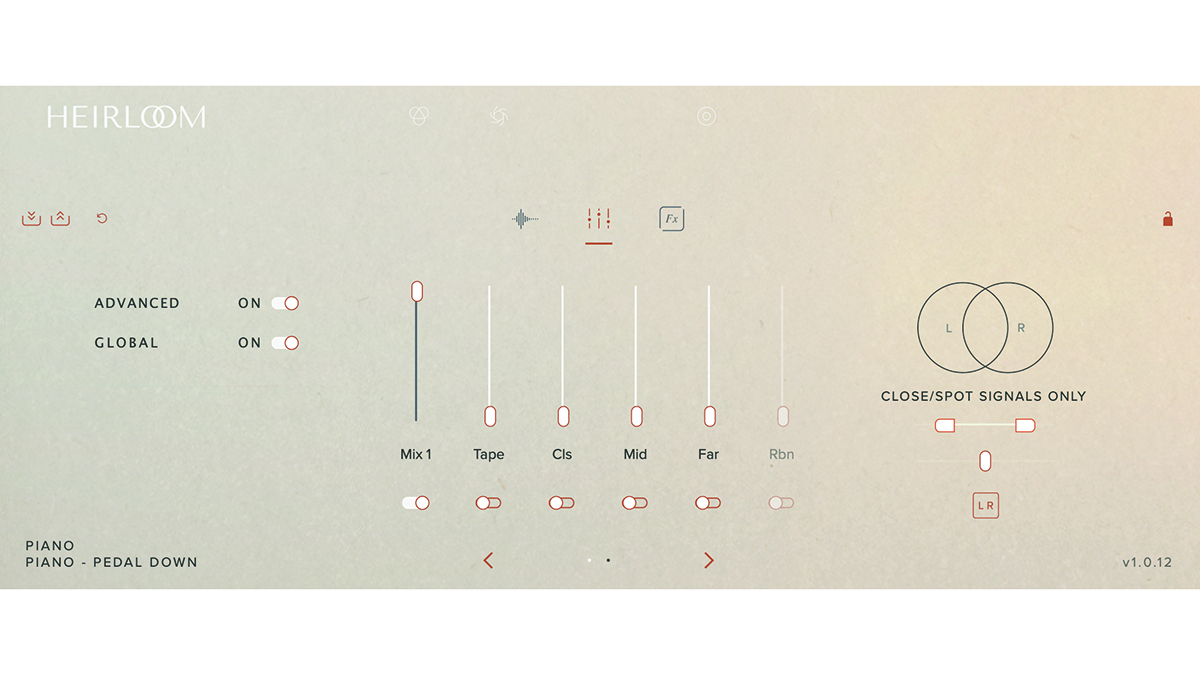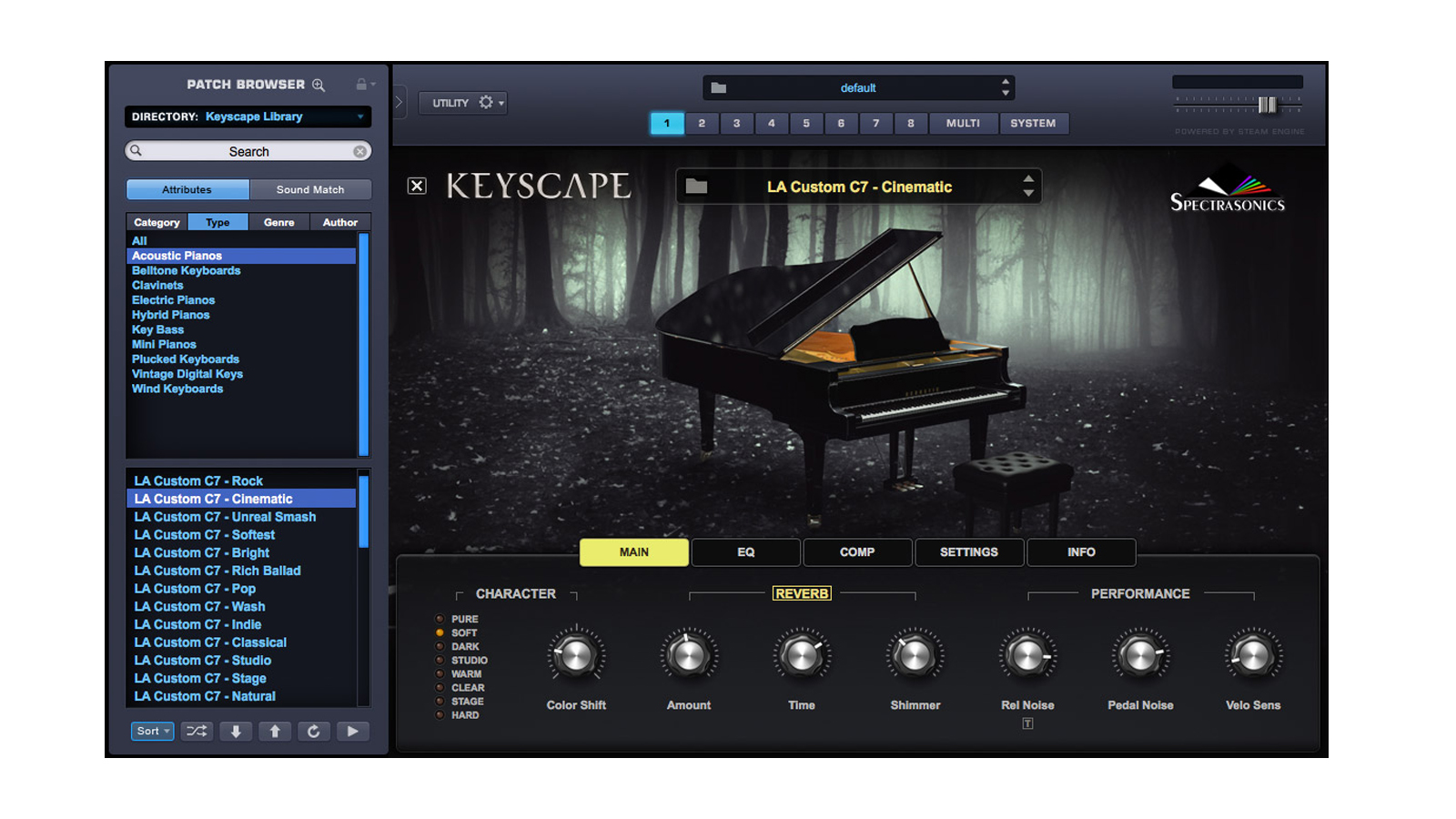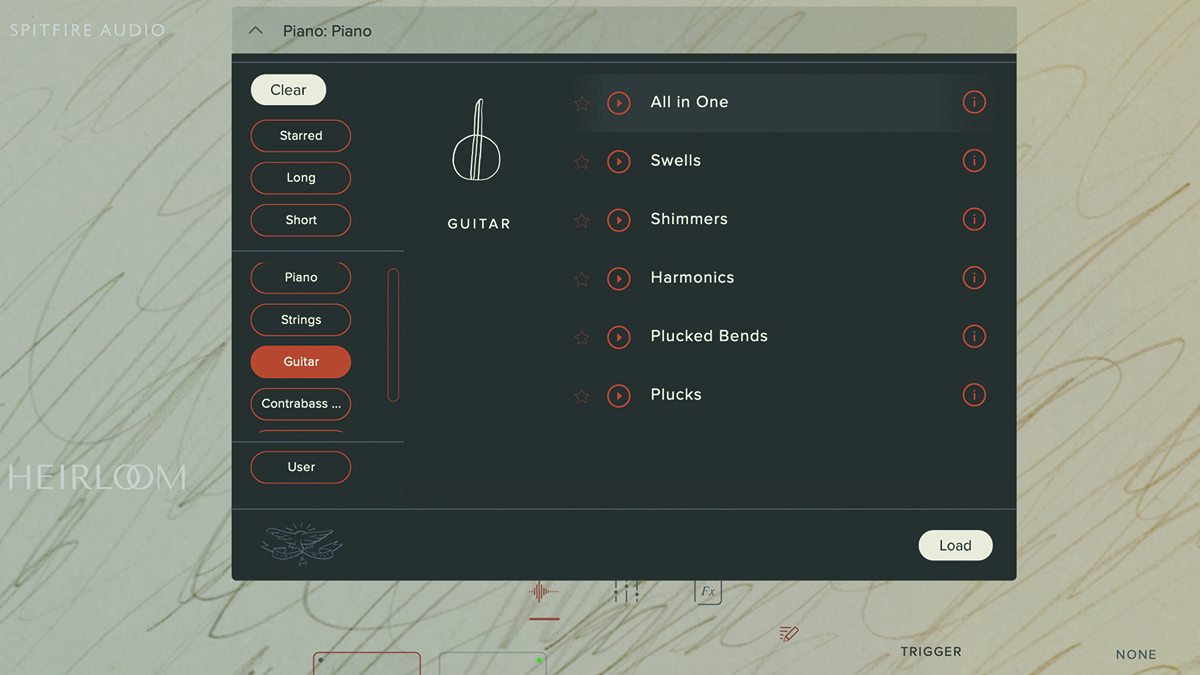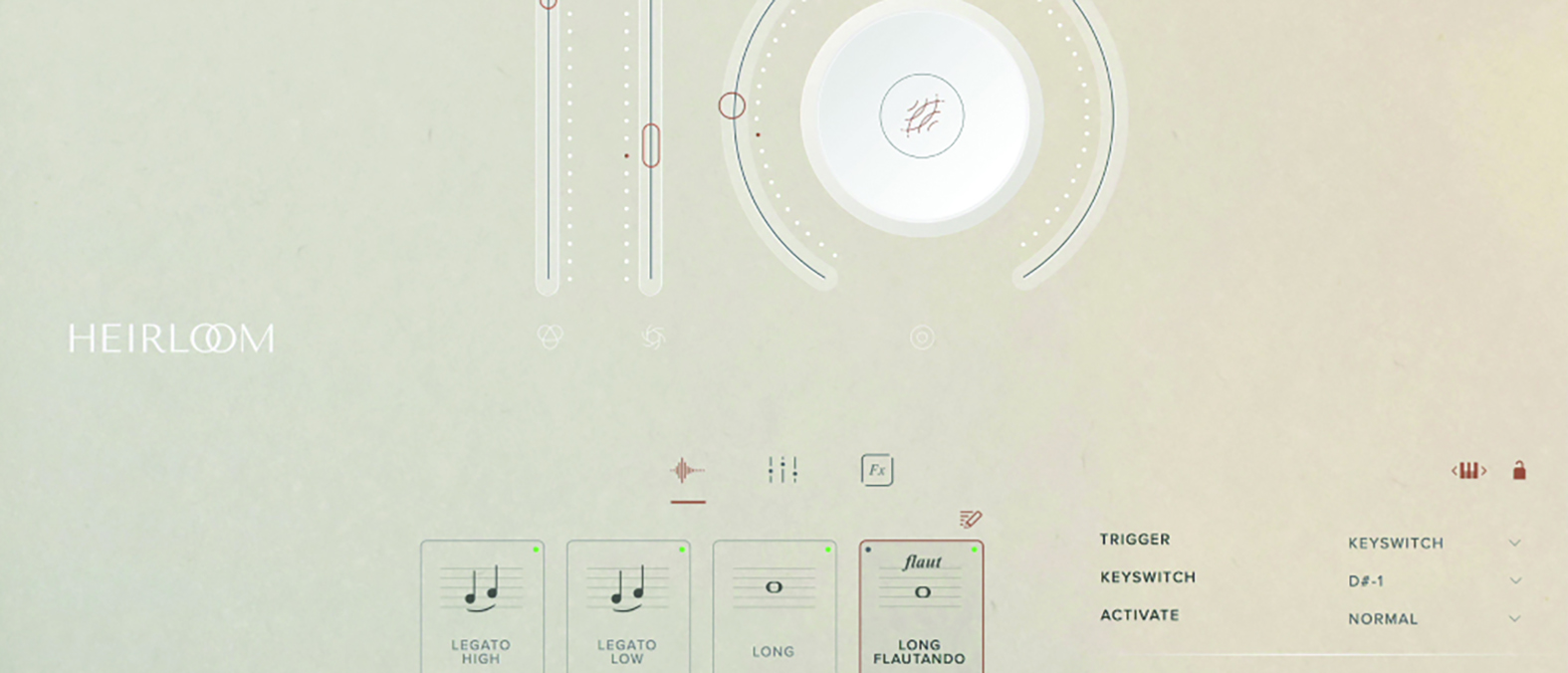MusicRadar Verdict
An excellent source for the types of sound that will really get a lump in your audience’s throat, Heirloom demonstrates the nuanced side of the orchestral titans.
Pros
- +
Recorded beautifully.
- +
Deep microphone and reverb options.
- +
Versatile playing styles, with the ability to craft your own presets.
Cons
- -
Occasional CPU slowdown.
- -
Limited appeal outside its niche.
MusicRadar's got your back
Spitfire Heirloom: What is it?
What is it about certain film, television and video game scores that can move us so much? Is it some alchemic combination of melody and tone, in simpatico with the ups and downs of the characters that we’re rooting for, which makes them so frequently affecting? Or is it something deeper? Some textural quality within the music itself, that if you could somehow bottle, would form a never ending repository of heartbreaking cues and themes.
Spitfire Audio would certainly plump for the latter notion, and with the intricate, honest sounds of Heirloom, the company has sought to build such an emotive storehouse.
With the intricate, honest sounds of Heirloom, Spitfire has sought to build an emotive storehouse
Recorded at the atmospheric environs of The Church Studios, Heirloom compiles an array of instrumental flavours, built around the style and approach of composer Keaton Henson. Its sensitive palette of samples stem from recordings of a weathered piano, chiming guitar textures, including volume swells, plucked bends and harmonics, delicate small ensemble strings and a curated platter of woodwinds.
Perhaps the best explanation for the style of affecting music that Heirloom serves as a toolkit for is a simple quote, found throughout Heirloom’s marketing: “It’s the audial equivalent of the worn away seat of your father’s favourite chair. Traces, marks and imprints left behind by those who are perhaps no longer with us. Gone, but never forgotten.”

Spitfire Heirloom: Performance and verdict
Simply installed via Spitfire’s Audio App, this 34.2GB library arrives surprisingly quickly on our hard drive, and is fired up as an AU instrument within a skeletal Logic Pro project. The UI will be familiar to all who’ve used Spitfire’s canon over the last five years, defined as it is by its central circular knob – assignable to any of the library’s parameters (Reverb, Release and Tightness). Beneath this is the technique switcher, allowing you to choose between performance styles for the selected instrument.

• Spectrasonics Keyscape
For a much more diverse array of piano sounds – some similarly intimate – Keyscape is a good call.
• Best Service Emotional Violin
The meticulous four-year building process results in extraordinary, weepy string textures.
Cycling through the samples on offer suggests at the type of arrangement we should be thinking about. Twinkling the delicate ivories suggests that we keep a restrained poise on the piano, while the swelling, ghostly guitar textures leave us with a haunting impression – even in isolation. When coupled with the rawness of the piano sound, the heart-string tugging character of this guitar craft flourishes, suggesting at the fleetingness of memory… or something.
From these basic yet effective beginnings, we can build our arrangement out with the small string section. Consisting of three violins, two violas, two cellos and a bass, we can gradually weave sweeping and silky legatos, chilling flautandos and softly delivered brushed playing to raise our track some more cinematic weight. Contrabass clarinet is a nice addition too, used to craft either pulse-quickening stabs or airy breaths, while the Tubax (a modified sax) lends some murky low end to proceedings.
Want all the hottest music and gear news, reviews, deals, features and more, direct to your inbox? Sign up here.
Take me to church
While the recordings – overseen by AIR’s Fiona Cruickshank – are an exemplary starting point, Spitfire’s typically broad sculpting controls allow us to cycle and mix between different microphone groups.
While these groups include traditional ribbon and close condenser microphone options, there’s also a heavily saturated tape signal, and the ability to place your mics at the most extreme position away from the instruments – soaking up the full flavour of The Church’s fabled acoustics.

Traces of memory
To further accentuate the pack’s reflective USP, a series of plate and spring reverbs can be applied: from the cavernous Dark Chamber with its seemingly never ending tail, to the Abrupt Plate, which oddly makes the already intimate sounding recordings sound even tighter.
It’s easy to overkill the reverb, but doing so would erode the intentionally intimate nature of how these instruments have been recorded. However, Spitfire does provide routes to carving your own variations of the pack’s recordings. Of particular note is the Technique Editor, wherein you can build and modify your own instrument presets by melding and re-organising techniques. How much of this you want to do, though, depends on how far you want to deviate from the pack’s, myriad, and already good-to-go presets.
Verdict
Heirloom is an all-in-one route to achingly emotional compositions. While some will undoubtedly turn their nose up at the pack’s attempts to offer an engineered machine for getting people ‘right in the feels’, others will certainly get much out of Spitfire’s most simply human sample library to date.
These are thoroughly timeless sounds, and really could be all that you need to help you write a series of affecting cues, bolster your songwriting or simply lose yourself in a spot of reflective composing
MusicRadar verdict: An excellent source for the types of sound that will really get a lump in your audience’s throat, Heirloom demonstrates the nuanced side of the orchestral titans.
Spitfire Heirloom: Hands-on demos
Spitfire Audio
Christopher Siu
Simeon Amburgey
Sample Library Review
Spitfire Heirloom: Specifications
- 34.2GB download size. 34.18GB disk space required during install.
- Mac OS X 10.13 to OS X 12. Minimum: 2.8GHz i5 (quad-core), 8GB RAM. Recommended: 2.8GHz i7 (six-core), 16GB RAM – Intel and M1 Macs supported 64-bit DAW Required (32-bit DAWs not supported).
- Windows 7, Windows 8, Windows 10 and Windows 11 (latest Service Pack, 64-bit). Minimum: Intel Core 2.8GHz i5 (quad-core) or AMD Ryzen 5, 8GB RAM. Recommended: Intel 2.8GHzi7 (six-core) or AMD R7 2700, 16GB RAM – 64-bit DAW required (32-bit DAWs not supported).
- CONTACT: Spitfire Audio
Computer Music magazine is the world’s best selling publication dedicated solely to making great music with your Mac or PC computer. Each issue it brings its lucky readers the best in cutting-edge tutorials, need-to-know, expert software reviews and even all the tools you actually need to make great music today, courtesy of our legendary CM Plugin Suite.

